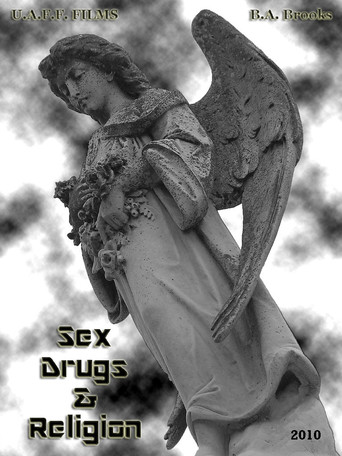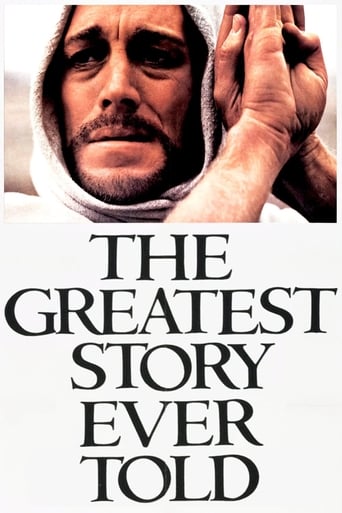

The God Who Wasn't There (2005)
Did Jesus exist? This film starts with that question, then goes on to examine Christianity as a whole.
Watch Trailer
Cast


Similar titles
Reviews
Simply Perfect
It's funny, it's tense, it features two great performances from two actors and the director expertly creates a web of odd tension where you actually don't know what is happening for the majority of the run time.
Through painfully honest and emotional moments, the movie becomes irresistibly relatable
All of these films share one commonality, that being a kind of emotional center that humanizes a cast of monsters.
How can this awful movie possibly get a higher IMDb rating than Higher Ground? Higher Ground also came from a recovering fundamentalist, but treated her religious experiences with great insight and sensitivity. Compared to that movie, this one is embarrassing.I give it 4 stars because it was at least very thought-provoking. It's very interesting because it doesn't just debunk Christian theology. Instead, it actually goes so far as to come up with an "atheist theology" which is even easier to debunk.I mean, seriously: Jesus didn't exist because many parts of his life are also found in the lives of contemporary gods like Dionysus? Dionysus and countless others are also depicted as having had a virgin birth, a resurrection, etc. Therefore, Jesus was no more real that Dionysus and the others? Seriously? There's a perfectly reasonable alternative explanation. Imagine God saying the following to himself, before sending his son to earth: They already have a model or a prototype that they expect their little gods to follow, even though these gods are completely mythical. So I'll blow them away even more if I more-or-less follow that model, but make it all true: really heal the sick, really resurrect dead people, etc. But again and again, this director ignores the possibility of reasonable explanations, and never proves his assertions like, "Therefore, Jesus is no more real than any of these other mythical gods were." And why attack Mel Gibson's Passion movie for being so violent? Was his point that Christians should be criticized because they actually liked this portrayal of their Christ? Perhaps the world is simply, on occasion, a very violent place. It's like criticizing patriotic Americans because they like the violence of Saving Private Ryan. I didn't like the violence of WW2, but the reality of what our troops suffered on Omaha Beach made me respect their heroism more, not less.While I'm no fan of any kind of fundamentalism, this movie made it clear that atheist fundamentalism can be equally as obnoxious as the religious kind is. Many atheists are actually very nice people who believe religion is at best a crutch used to help and comfort those too weak to stand on their own. They would never go around kicking the crutches of people recovering from broken legs. But the obnoxious tone of this whole movie is nothing more than "kicking the crutch" out from under Christians who need their faith to get through life.See Higher Ground instead. That was so well done. This movie did nothing but ridicule, and instead ended up making itself ridiculous.
I am an atheist, like Brian Flemming, and I used to be a fundamentalist Christian, like Flemming. I think that religion is a bane on society that mankind should rid itself of. However, I am afraid that this movie is much too polemic and dishonest to make a big difference. Flemming makes all the usual mistakes that atheists make when attacking Christianity, like quoting the Bible out of context and demanding that Christians follow Old Testament laws. An assault on the gigantic monolith of faith requires more finesse and objectivity. What Flemming does right is his titular topic, i.e. his gripping presentation of the problem of the historical Jesus. It is truly thought- provoking, and I wish he had stuck closer to that. Here and there, he also manages to shine a good light on the religious mind and bring up something worth thinking about. I would advice viewers to be critical, even of this critical film. That should be a general rule, anyway.
In terms of its content, this film really discredits serious atheists. Several "facts" are simply wrong and manipulated to serve the main argument. Educated people who see through these fallacies are bound to lose any trust and respect for the narrator/filmmaker. For instance, at the very beginning Flemming asserts that the Christians got the geocentric astronomical model wrong. Actually, this model originates in ancient Greece, so it is not a Christian invention (even if they persecuted heretics who proclaimed the heliocentric model).The hyped and sensationalist way in which arguments and "facts" are presented is detrimental to any serious point the director is trying to make. I have no problem with the collage-like and playful tone and visual style of this documentary, which is inspired by "Bowling for Columbine" and "Supersize Me". However, unlike Moore and Spurlock, the way this style is used to represent the topic and themes is infantile. The animations and graphics in combination with his voice-over is highly patronising and seems to address either uneducated people or children. It is also highly exploitative to do vox-pops with devoted Christians and ask them intellectual questions about historical facts or apologetics and get ridiculous responses. This pseudo-Socratic approach is expected to create tension and cheap TV, NOT to make people think (whether the audience or the interviewee). In "Religilous" Bill Maher uses a much less Socratic approach in which he doesn't just question people's views, but also expresses his opinions. This is much more self-reflexive and honest, which makes Maher a much more respectable narrator and presenter, and we are more likely to trust him.What is the focus of this documentary? Is it to debunk Jesus's existence? Flemming doesn't offer any argument against the actual existence of Jesus. The arguments about the mythical character Jesus do not deny that someone of this name might have really existed (for which there are historical clues, even if not strong evidence). Most of the film, though, is not about Jesus's existence but about debunking Christian doctrines.Is the focus to promote atheism (which I was hoping)? It is certainly not, because the few atheist arguments Flemming uses are ridiculous and not even used by serious atheist apologists. For instance, the institutional aspect of faith (such as Christianity) is not a valid argument against a super-natural being, simply because most atheists and good theologians agree that religions are human constructs. In TGWWT Sam Harris offers an excellent argument paralleling pathological conditions (such as delusion and psychopathy) with religious belief. However, instead of developing this argument further (like Bill Maher does in Religilous) Flemming cannot wait to go back to his infantile MO, playing a frustrated anti-Christian and neurotic crusader who wants to overcome a childhood trauma of religious indoctrination.Flemming's declaration in an interview that he is a "Christian Atheist" shows that he doesn't really know what he is talking about, plus, he is more interested in media hype than a serious documentary (with "serious" I mean a documentary that connects to an audience and actually makes people think, not "serious" in tone. "Religilous" is a comedy but still a serious documentary). If he would look at the etymology of "Christianity" and "Christ", he would understand that it implies exactly what an atheist is not. So, instead of labelling himself with an oxymoron just for shock-value, he should rather do some reading and not pretend that ignorance is a virtue.Would I recommend this film? Yes, for film students who want to learn of how not to make a documentary (in every aspect). No, to people who want to get some insight into atheism, apologetics or history.
Before I begin this review I must say I am surprised that I am even writing it. My reviews mainly consist of big blockbusters and anime. Do not get me wrong I enjoy documentary and fiction based stuff (Bill Maher's Religulous is one of my favorites) I just don't feel the need to comment on them, but with is film I felt needed to.As an agnostic I truly take no sides in the thesis or atheist argument when it comes to religion, I am a person to who see's both sides of any debate. Therefore I have seen interesting films that are both religious and non religious and The God who wasn't there was another one of these films.The beginning of the film is quite interesting where the director brings up inconsistencies in the Gospels and showing how other religions had similar figures to Jesus and his life; also it was good to show some people in both the religious and political spectrum twist certain ideas of faith to fit there own agendas and justification of violence.However, the director lost me when he returned to the fundamentalist school he attended as a youth where he basically tricked and cornered the school superintendent into trying to admit his teachings were wrong.While I am agnostic and have no real opinion on faith, I do think any sort of belief is a good thing and to go and make it seems like brain washing or something evil is just wrong, after watching the film it seemed more like a personal purging of the directors angst rather than a impartial argument of the existence of God.In closing, I would not say do not see this film it brings up some good points, but go in knowing that it is not unbiased view point. Otherwise it will leave a bad taste in your mouth.













